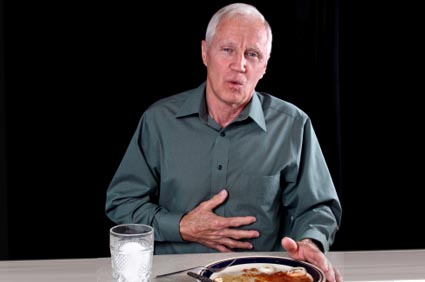Digestion's Impact
The Digestive System is one of the most important systems in the body. Watch this video in relation to this article:
Dear reader, when I wrote this above mentioned issue is with the aim to educate and inform, not replace medical diagnosis. At the end of this article, you will find the recommendation for this issue of Indigestion.
Let's talk about Indigestion:
Indigestion is often a sign of an underlying problem, such as gastro esophageal reflux disease, ulcers, or gallbladder disease, rather than a condition of its own.
Also called dyspepsia, indigestion is a term used to describe a feeling of fullness or discomfort during or after a meal. It can be accompanied by burning or pain in the upper stomach.
1.- What Are the Symptoms of Indigestion?
The symptoms of indigestion include:
Bloating (full feeling)
Belching and gas
Nausea and vomiting
Acidic taste
Growling stomach
Burning in the stomach or upper abdomen
Abdominal pain
These symptoms may increase in times of stress.
People often have heartburn (a burning sensation deep in the chest) along with indigestion. But heartburn is caused by stomach acids rising into the esophagus.
2.- Who Is at Risk for Indigestion?
People of all ages and of both sexes are affected by indigestion. It's extremely common. An individual's risk increases with excess alcohol consumption, use of drugs that may irritate the stomach (such as aspirin); other conditions where there is an abnormality in the digestive tract such as an ulcer and emotional problems such as anxiety or depression.
3.- What Causes Indigestion?
Indigestion has many causes, including:
Diseases:
Ulcers
GERD
Stomach cancer (rare)
Gastro paresis (a condition where the stomach doesn't empty properly; this often occurs in diabetics)
Stomach infections
Irritable bowel syndrome
Chronic pancreatitis
Thyroid disease
Medications:
Aspirin and many other painkillers
Estrogen and oral contraceptives
Steroid medications
Certain antibiotics
Thyroid medicines
Lifestyle:
Eating too much, eating too fast, eating high-fat foods, or eating during stressful situations
Drinking too much alcohol
Cigarette smoking
Stress and fatigue
Swallowing excessive air when eating may increase the symptoms of belching and bloating, which are often associated with indigestion.
Sometimes people have persistent indigestion that is not related to any of these factors. This type of indigestion is called functional, or non-ulcer dyspepsia.
During the middle and later parts of pregnancy, many women have indigestion. This is believed to be caused by a number of pregnancy-related factors including hormones, which relax the muscles of the digestive tract, and the pressure of the growing uterus on the stomach.
4.- How Is Indigestion Diagnosed?
If you are experiencing symptoms of indigestion, make an appointment to see your doctor to rule out a more serious condition. Because indigestion is such a broad term, it is helpful to provide your doctor with a precise description of the discomfort you are experiencing. In describing your indigestion symptoms, try to define where in the abdomen the discomfort usually occurs. Simply reporting pain in the stomach is not detailed enough for your doctor to help identify and treat your problem.
5.- What Is the Treatment for Indigestion?
Because indigestion is a symptom rather than a disease, treatment usually depends upon the underlying condition causing the indigestion.
Using our package and a change in your lifestyle can help in this problem. I guarantee that your problem will be gone away.

